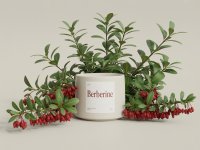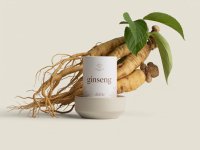
echinacea
Description
Echinacea, a group of flowering plants native to North America, has been used for centuries in traditional medicine. Primarily known for its potential to boost the immune system and combat the common cold, echinacea is available in various forms, from teas to supplements. This article offers a comprehensive yet accessible overview, providing insights into its benefits, uses, and potential side effects.
Quick Overview: echinacea At-a-Glance
- Key Benefit: May boost immune function and reduce the severity/duration of colds.
- Primary Mechanism: Thought to stimulate immune cells and possess anti-inflammatory properties.
- Best For: Individuals seeking natural immune support, especially during cold and flu season.
- Typical Dose Range: Varies widely; follow product label or consult a healthcare professional.
- Key Caution/Consideration: Allergic reactions are possible, especially for those allergic to ragweed or related plants.
Table of Contents
Categories & Effectiveness
Learn about our rating methodologyMood & Stress
Mood Elevation
4/10Moderate evidence of effectiveness
Wellbeing Boost
4/10Moderate evidence of effectiveness
Systemic Health
Immune System Boost
10/10Strong evidence of effectiveness
Anti-Inflammatory (Systemic)
7/10Strong evidence of effectiveness
Immune System Balance
4/10Moderate evidence of effectiveness
Systemic Antioxidant
4/10Moderate evidence of effectiveness
Dosage & Side Effects
Recommended Dosage
Potential Side Effects
Bioavailability & Half-Life
Interactions & Stacks
Recommended Products
Echinacea 7500 mg. 180 vegane Kapseln für 6 Monate. Echinacea Purpurea-Extrakt mit 4% Polyphenolen. Hergestellt von HIVITAL
- Rated 4.7 stars by 279 customers
- Premium quality ingredients
Echinacea PLUS , spezielle Rezeptur - Echinacea, Lebensbaum und wildem Indigo für das Immunsystem, energetisch/radionisch informiert, Die KRaft der Natur!
- Rated 4.7 stars by 43 customers
- Premium quality ingredients
Echinacea-ratiopharm 100 mg Tabletten: Natürliche Unterstützung für das Immunsystem - zur Behandlung von Erkältungskrankheiten und Infekten der ableitenden Harnwege, 50 Tabletten
- Rated 4.6 stars by 194 customers
- Premium quality ingredients
As an Amazon Associate we earn from qualifying purchases. Prices and availability are accurate as of the date/time indicated and are subject to change.
Benefits by Use Case
Cold & Flu Prevention
May reduce the frequency of respiratory tract infections and the need for antibiotics. Alcoholic extracts from freshly harvested Echinacea purpurea showed the strongest effect. However, findings vary depending on the preparation.
User Review:
Echinacea significantly reduced monthly RTI occurrence (RR 0.68)
Anxiety Relief
Some studies suggest that Echinacea angustifolia extract (EP107TM) may improve positive and negative affect, and emotional wellbeing. However, it was not associated with greater improvements in anxiety compared to placebo, requiring further validation.
User Review:
Greater improvements in positive and negative affect, and emotional wellbeing, suggesting antidepressant effects.
Mechanism of Action
Frequently Asked Questions
Where to Buy echinacea
Based on quality, price, and customer reviews, here are our top recommended echinacea supplements:
Immunsystem-Komplex - 500mg Echinacea mit Vitamin C Zink Selen L-Histidin & Kalmegh - Immunsystem stärken * vegan & ohne Zusätze - 120 Echinacea Purpurea Kapseln für 60 Tage
- Rated 4.4 stars by 1,181 customers
- Premium quality ingredients
Echinacea 7500 mg. 180 vegane Kapseln für 6 Monate. Echinacea Purpurea-Extrakt mit 4% Polyphenolen. Hergestellt von HIVITAL
- Rated 4.7 stars by 279 customers
- Premium quality ingredients
Natürliche Echinacea 500 mg | 240 hochkonzentrierte vegane Tabletten | Zur Bekämpfung von Erkältung und Grippe| Stärkt das Immunsystem | Von Aceso
- Rated 4.6 stars by 248 customers
- Premium quality ingredients
As an Amazon Associate we earn from qualifying purchases. Prices and availability are accurate as of the date/time indicated and are subject to change.
Summary & Expert Opinion
Delving deeper, echinacea's complex mechanism of action involves a multifaceted interaction with the immune system. The active compounds, including alkamides, caffeic acid derivatives, and polysaccharides, are thought to modulate immune cell activity. Specifically, polysaccharides may stimulate macrophages, enhancing their ability to engulf and destroy pathogens, while alkamides may exert anti-inflammatory effects. However, the precise mechanisms and the relative contribution of each compound remain under investigation.
From a pharmacokinetic perspective, the bioavailability of echinacea's active constituents is not fully elucidated. While some studies have detected alkamides in the bloodstream after oral administration, the extent of absorption and the factors influencing it are still being researched. The lack of a definitive half-life for these compounds makes it challenging to predict the duration of echinacea's effects. Furthermore, the variability in phytochemical content among different echinacea species and preparations adds another layer of complexity.
The potential for herb-drug interactions is a significant consideration. Echinacea has been shown to affect the activity of certain cytochrome P450 enzymes, which are responsible for metabolizing many medications. This could potentially alter the levels and effects of these drugs, leading to either increased side effects or reduced efficacy. Therefore, individuals taking medications metabolized by these enzymes, such as certain immunosuppressants, antiretrovirals, or caffeine, should exercise caution and consult with a healthcare professional before using echinacea. It is also worth noting that while some studies question the contraindications for autoimmune diseases and pregnancy, it is best to exercise caution and seek a doctor's advice before use.









